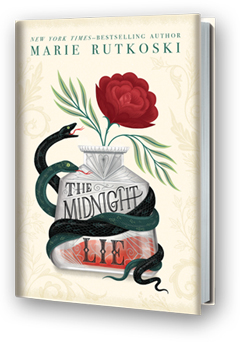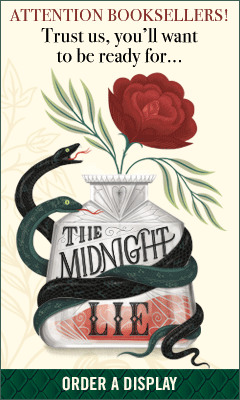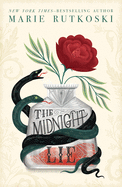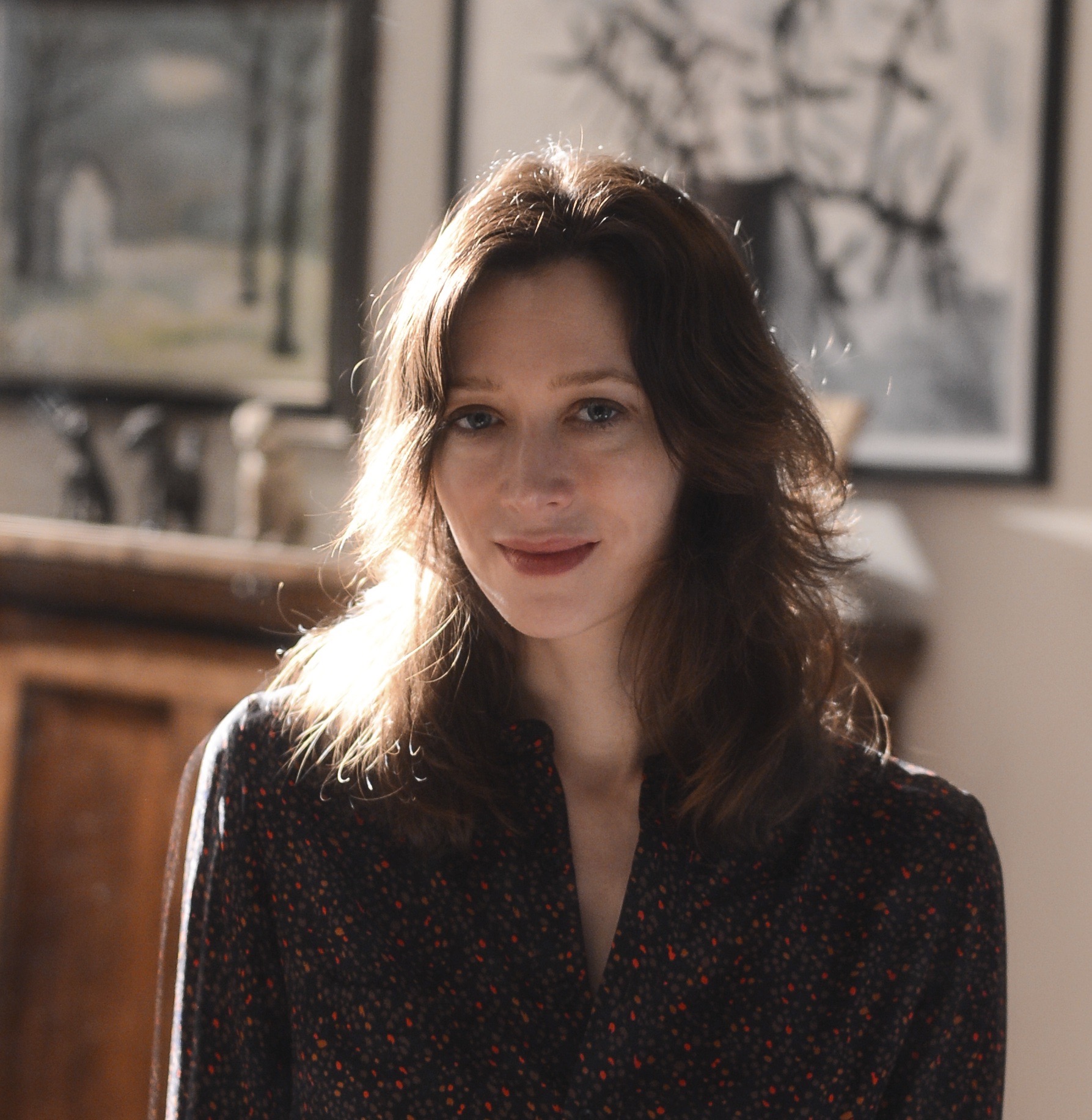The Midnight Lie
by Marie Rutkoski
In Marie Rutkoski's darkly enchanting The Midnight Lie, Nirrim, a young woman who has visions she doesn't understand, lives in the impoverished center of a dazzling, magical city.
Encompassed by a wall, in the middle of the city of Ethin, is the Ward. There live the Half Kith, ruled by restrictions that dictate what they are allowed to do (very little), wear (only drab colors), make (products to be used by the upper Kiths) and eat (no food that is "tangy or sour or spiced or sweet"). Nineteen-year-old Nirrim is one of the many disenfranchised who live in this place of "dull colors" and few liberties. She works for tavern-owner Raven, who, as a Middling, is "allowed to come and go beyond the wall," leaving the Ward--which Half Kith are not allowed to do--and entering the Middling city that surrounds the Ward in its own enclosed ring. By all appearances, Raven is a businesswoman held in high esteem. The Half Kith's high regard of her, though, is more about her side job: she and Nirrim create forged passports. Nirrim believes they are helping the Half Kith in the Ward to escape, perhaps even get past the Middling city's wall and enter the opulent coastal home of the High Kith, where "teardrops of hail spangle the pink sand beaches."
On the day of the moon festival, Raven sends Nirrim to acquire more materials for fake passports. As Nirrim walks the "puzzle of skinny streets that turn an ice wind into pure malice," she keeps an eye out for the militia who, were they to arrest her, would make her pay a tithe. If she is lucky, her hair would be cut or her blood drawn; others lose eyes, limbs, even their lives. It isn't, however, the militia that gets Nirrim in trouble. An Elysium bird, the "gods' bird," has gotten loose in the Ward. "They say that the song of the Elysium bird makes you dream.... that these dreams remedy the past, take the sting out of memories." Everyone in the Ward is convinced they can capture the bird and make a profit from it. But it is Nirrim who catches the bird. "It occurred to me that the bird wanted me as much as I wanted it," Nirrim thinks upon hearing its song. "It knew I was coming." She imagines its "short, inky beak. Its tiny emerald eyes," though she has never actually seen an Elysium bird in real life. She is confused--this feels like a memory more than a vision--but she chalks it up to her lifelong torment of seeing and experiencing things that aren't truly there. The Elysium bird finds her and, unable to kill the beautiful creature for profit, Nirrim gives it to the militia. They arrest her and sentence her to a month in prison and a blood tithe.
In prison, she meets Sid, a "traveler." Sid, who is serving time for taking "a lord's lady to bed," is in Ethin for adventure. According to Sid, the island is not on any map: "My people have been seafarers for generations.... How is it that we discovered it only earlier this year?" Sid, flirting all the while, asks Nirrim questions--Why do some people live behind a wall? Why a tithe?--forcing Nirrim to fully contemplate the answers. Why are the Half Kith forced to live colorless, flavorless lives? What is the purpose of the tithes they pay? And, Sid tells her, there's something particularly strange about Ethin: magic. "Magic that allows you to create fabulous things, like pocket watches that don't tell the time but rather tell you the emotions of the people standing around you." Over their few days together, Nirrim starts to fall for the self-declared licentious Sid and feels the beginnings of understanding taking root: "They say that there was magic in this city when the gods still walked among us. That some people were god-touched. They had the favor of those beings, and a shadow of their power." With Sid's help, Nirrim will escape the Ward to delve into her city's past--which is surprisingly interwoven with her own.
Though it's a return to the world of the Winners Trilogy, Rutkoski's bewitching The Midnight Lie--the first of a duology--stands firmly on its own. The city of Ethin is a mysterious place, all the more interesting for its stark social divisions and hidden history; Rutkoski further exposes these chasms and secrets through an LGBTQ lens. Nirrim makes for a fascinating protagonist: she's extremely rational despite the vivid fantasies she sees of another existence, deeply empathetic although she rarely receives comfort herself. Sid and the mission to learn the mysteries of Ethin add color and passion to Nirrim's life, but she retains her individual voice and uncommon way of thinking throughout. The Midnight Lie is unsettling and thrilling, the world intricate and purposeful, and Nirrim a protagonist readers will surely find enthralling. --Siân Gaetano, children's and YA editor, Shelf Awareness








